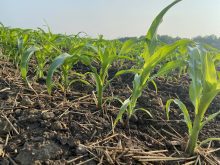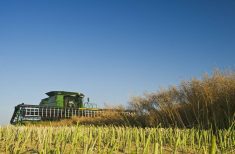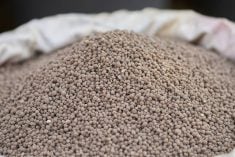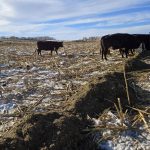The disaster in Japan may not curtail its imports of agricultural commodities and could even increase them over time, a Canadian Wheat Board official said.
Once Japan begins to recover from the effects of the earthquake, tsunami and nuclear meltdown, Japanese consumers may become more accepting of food imports, said Neil Townsend, a CWB market analyst.
Damage to farmland and infrastructure may temporarily affect domestic food production, and consumers may also be less trusting of local food because of radiation contamination and mistrust of the Japanese government over its handling of the disaster, he said.
Read Also

Tie vote derails canola tariff compensation resolution at MCGA
Manitoba Canola Growers Association members were split on whether to push Ottawa for compensation for losses due to Chinese tariffs.
Townsend said the Japanese are “very food sensitive” and could become wary of locally grown food, especially from the north where damaged nuclear power plants are emitting radiation.
“For the next year, that usual ‘Made in Japan’ thing, they’re going to be a little more scared of that because of radiation and all of this talk,” he said.
“Once they start to get back on their feet, it might be that they actually become a little more accepting of more food imports.”
Japan is a major importer of Canadian wheat, canola, pork and beef. Canada’s commodity groups were unsure last week how the Japanese catastrophe might affect exports.
“I don’t know about the beef impact for sure,” said Larry Sears, past chair of the Canada Beef Export Federation. “We don’t have any idea what demand is going to do. We don’t know what’s happened to the domestic supply.”
Japan is Canada’s third-largest beef customer, after the United States and Mexico, although it currently only imports Canadian beef from cattle under 21 months of age. The Japanese government was starting to look at raising the age limit to 30 months, but the disaster might delay that, said Sears, a producer from Stavely, Alberta.
The executive director of Canada Pork International said pork is a staple food in Japan and the disaster won’t affect consumer demand for that product.
“We don’t expect anything changing in that regard,” said Jacques Pomerleau.
Pork shipments have always landed at ports in the south of Japan, not the north where the earthquake occurred, he noted.
The nuclear disaster is causing electricity shortages but it’s unclear how, or if, that will affect refrigeration for unloaded meat. Transportation from ports to markets is also uncertain, Pomerleau said.
Japan is Canada’s second-largest market after the U. S for pork. It imported roughly 240,000 tonnes worth over $850 million in 2010.
Fears that the earthquake might disrupt Canada’s grain exports were eased last week when Japan placed a tender for over 32,000 tonnes of western hard red spring wheat.
For now, it’s business as usual for Canada’s wheat and durum trade with Japan, said Maureen Fitzhenry, a Canadian Wheat Board spokesperson.
“We don’t anticipate that they’re going to have less demand for Canadian wheat,” said Fitzhenry. “Whether or not the demand increases is something that we’ll have to wait and see.”
Some of the country’s biggest flour mills are in the southern region and would not have sustained damage, although they may be affected by recurring power outages, she said.
Japan is one of Canada’s top five wheat and durum buyers, purchasing an average of 1.2 million tonnes over the last 10 years.
Japan is also Canada’s second- largest buyer of canola seed after China. JoAnne Buth, Canola Council of Canada president, could not say how those sales will be affected, although she said she understood most of Japan’s canola-crushing plants are not in the area hit by the earthquake.
Japan is also a major importer of corn, although not from Canada. Townsend said 15 to 20 per cent of Japan’s livestock feed-milling capacity is in the affected area. That could reduce demand for corn and possibly increase meat imports temporarily to compensate, he said. [email protected]
———
Itmightbethattheyactuallybecomealittle moreacceptingofmorefoodimports.”
– NEIL TOWNSEND, CWB














